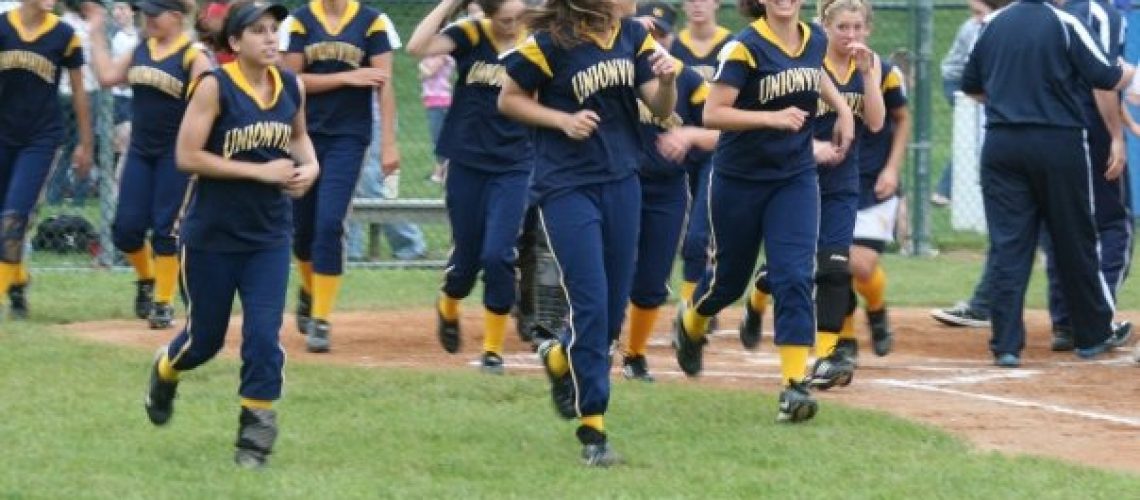To know your players is an important piece of coaching. What are their skill strengths, who is the fastest or most mentally tough? Who is best in certain situations? Who is the go to off the bench? When the game is on the line? Who needs more coaching or an arm around the shoulder when it’s tough? Who needs to be left alone? But what about the things they may need off the field? Is that your job?
This opens a conversation that I think is an important one for coaches on any field, at any level: The player as a human being and not just a part of your winning percentage. We may often believe fully that we have their best interests in mind when making decisions for the team. We believe strongly that we know our players and how to best guide them. But the truth is that we know only what they will allow us to know and the parts they share with us. And as coaches, there is always more to them than that. So making decisions based on what WE know sometimes may not always pan out the way we plan.
I shared the story a long time ago about one of the players I had the honor of coaching many years ago when I coached at the high school level. She played JV for a few years and was pulled up to play varsity as a Junior. Her best friend decided to quit the team and she was contemplating following her. I thought she would because she was a kid who just wanted to have fun and do what she wanted. That was what I thought then. She came to me with an open and honest discussion and told me why she still wanted to stay and asked my opinion. It was in that moment that my opinion of her changed.
Abby and I got close over those next few months. But mostly as the season ended, she would write me messages and tell me how much I was a factor in her staying on the team. We built a foundation of trust and conversation that she felt she could talk to me. It was one of compassion and respect. I liked to feel like I gave her some guidance in the “life stuff” she would ask me about. I enjoyed getting to know her as a human being and helping shape the wonderful young lady she was becoming.
In one moment, everything changed. Abby died in a car crash the night before I was going to meet with her to discuss her future plans with softball and college, etc. It was one of the most devastating phone calls I had ever received. I was crushed. For her family, for her friends and teammates, and for me. And I felt like we weren’t finished yet. I was watching this transformation of a beautiful butterfly happen in front of my eyes. And then she was gone. It was heart-wrenching.
Perhaps what I learned most of all during that time is that it taught me how much softball mirrors life. What we teach these players on the field has so much more to do with what they do off of it than what they will every do during the limited time they play the game.
Abby made me realize that we sometimes make assumptions about someone’s desire and drive based on factors that don’t tell the whole story. We think we know them because we know their athletic ability. But what we fail to recognize is that when we can pull out the stuff that matters most, it often affects their athleticism in amazingly positive ways. They become better players by the confidence and trust that manifests itself often just out of compassionate conversation.
And we become better coaches by doing just that.
Leading with compassion isn’t hard. It is simply learning to put the human being ahead of the stats. Learning who they really are at the core… then allowing that stuff to lead the rest. You will be amazed at how you can pull out the best in your athletes more than an extra lift or wind sprint.
I was reminded of this last night when I stopped to pick up my takeout for dinner. There was a gentleman waiting for his as well and started asking me about the tattoo on my leg. We got to talking. It turns out he is the father of a girl who played against that very high school team that Abby played on. We were able to turn the program around in a couple short years and made a run at the Conference title that year. He remembered me as that coach. And told me what a great job I did with that program. Coming from a father of an opposing pitcher who went on the play at a big D1 school in the northeast, that meant a lot to me. I like to believe it had everything to do with focusing on my players as the human beings they were and not just as the players who showed up on the field.
Talk to your players about life.
Get to know them.
They will go through a wall for you when they know you would do the same for them…
On and off the field.




